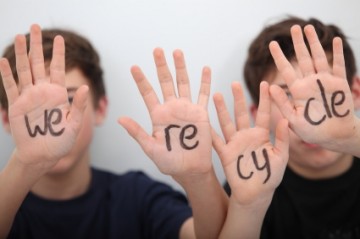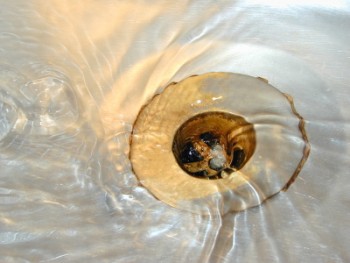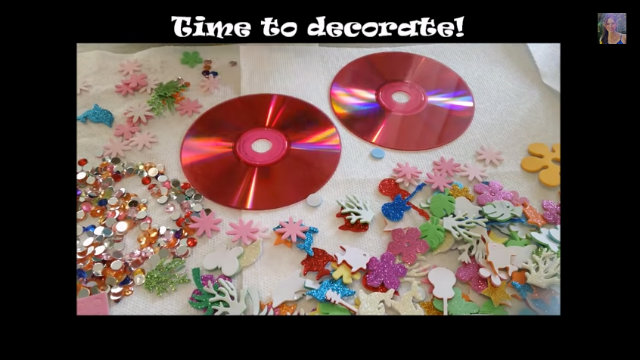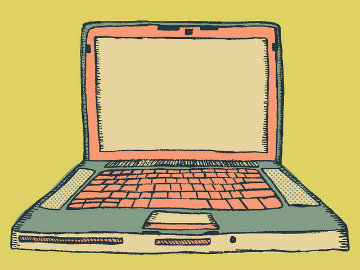Most of us will agree that we are living in an age where life is comfortable. Technology, urbanization and major industrial growth have touched and changed our lifestyle drastically. Though these changes have brought positive effects, it has also severely endangered the human environment.
On an average, about 0.1 million tones of solid waste is produced every day. Wastes include household, biomedical hazardous, electronic, and hospital waste. All these go to landfills where it finally gets disposed.
Environmental Waste Affect Us
In India, most wastes are disposed in open landfills, expose people to infection, toxic radiation, water contamination and affect the ecological cycle of nature. Studies suggest that emissions from hazardous substances cause various types of cancer, respiratory problems and birth defects.
Domestic waste composes of paper, metals, plastics, glass, food, garden waste and other miscellaneous items. Disposing these items requires a tremendous amount of energy, and the process releases gases such as carbon dioxide, methane and considerable amounts of hydrogen sulphide.
Most people fail to realize that a manufacture of an item requires lots of energy and resources. We can save and make a less impact on the environment if the demand is less.
Recycling Help to Sort the Problem of Landfill
Recycling is a continuous process where the waste is collected, sorted and converts the discarded materials into new materials. The benefits of recycling are many.
- Primarily, we can reduce the landfill space that used to dispose waste. This way only, the essentials can reach the landfills.
- Reduced demand lowers the energy and materials required to manufacture a new product. The energy thus saved, helps in the manufacture of other essential products. Saving energy also conserves the environment creating less pollution.
- Reusing the core elements of a used product, such as a paper product avoids cutting of trees largely.
- Most non-biodegradable waste is disposed by burning, which emits toxic gases into the air. Recycle of such products reduces harmful emissions to a great extent.
- With careful planning, you can save a lot of money by recycling, such as manufacturing costs, waste processing costs and other supplementary costs, which are passed on to the end-user, and will naturally reduce with less demand.
Some Recycling Facts
| Material | You save*
|
| 1 soft drink or soda can | Sufficient electricity to keep television or a computer running for three hours |
| 1 ton of recycled paper | Makes about 3.3 cubic yards of landfill space |
| 1 glass bottle | Saves enough electricity that can keep a 100 watt bulb on for four hours |
| 5 two-liter bottles | Create enough fiberfill to make one ski jacket
|
*The above table states a miniscule saving of recycling a material. Tons of other savings include in the form of energy, water, oil, gasoline and host of other natural resources.
How Can We Recycle
Almost any material that we consume or use can be recycled. The process of recycling is simple and easy. Check about the recycling programme within your area or community, and seek details on the process of waste management. At home or apartment, place big and sturdy bins where you can stock the recyclable materials. Mark containers for plastic, paper, glass and aluminum. Collect such items over time, sort and drop off the materials into appropriate bins. Clean or wash and remove labels, caps from all the material before depositing.
What Materials Can Be Recycled
| Material | Examples | Do not recycle |
| Glass | Bulb, bottles and food jars | Broken dishes, glass, ceramic objects, windows or mirrors |
| Meta | Steel, tin or Aluminum soda cans, foil, tins | Cookware, pots, pans, can used for painting or thinners |
| Plastics | Cans, bottles, jars, film, pipes, CD cases, plates, cutlery, cases | TV sets, cans that contain pesticides, chemicals, petroleum, cookware, toys, bags and packaging material |
| Paper / Cardboard | Sheets, magazines, newspaper, boxes, catalogs, envelopes, food boxes, cartons, bags, books without the hard cover, colored paper, wrapping paper | Hard cover of books, tissues, napkins, paper cups, waxed cartons or boxes, contaminated paper or box, pizza boxes |
Why Should I Not Recycle Some Materials
Certain materials degrade with exposure to heat and can adversely affect the environment with toxic pollutants. Therefore, few collection agents do not accept non-recyclable items.
Let Us Build a Healthy and Sustainable Environment
Think before you buy anything that cannot be recycled. Governmental and non-governmental bodies are actively involved in the efficient waste management program. Make an effort to spread and educate your friends, family and co-worker about the process. Initiate the process at your home or office and make planet Earth a better place to live.
Read the other features of the series:
Save Our Earth: Part 1, Slim Down Your Water Footprint
Save Our Earth: Part 2, Stop Criminal Waste of Water
Save Our Earth: Part 3, Cut down the Energy Consumption Today
Save our Earth: Part 5, Green Living Ideas for Responsible Living






